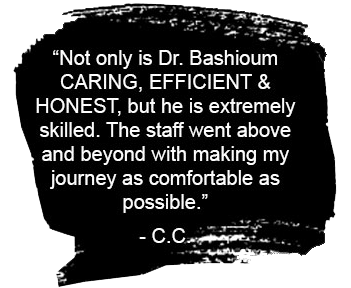Patient Safety Dilemma
December 16th, 2009
Elective surgery is defined as surgical treatments which are not emergent or life threatening. Elective surgery is often scheduled at the convenience of the patient, surgeon or based on operating room availability. It may also be rescheduled for a variety of reasons. I repeat, surgery can be rescheduled, even though it may present a major inconvenience to everyone involved.
Last week a patient came into my clinic to have breast enlargement surgery. I knew there was a problem immediately when I approached the preoperative examination room and noticed the lights had been dimmed in the room. When I entered, the patient was not looking well. She did not have a smile on her face, her eyes were not bright, and her speech was slow and deliberate. She told me she had a bad headache and felt sick to her stomach. In other words she did not look or feel well. She told me both of her friends had taken time off work to care for her after surgery. She had also taken time off work to have the surgery and recover. She wanted to proceed with the surgery, stating that she thought she would feel better after this (surgery) was all over. She attributed her condition to premenstrual symptoms. I faced a significant financial loss, but I did not hesitate to cancel her surgery that morning. How should I have advised her? Should I have accommodated her wishes? Should I take the chance that she might have a serious neurologic event (stroke or aneurysm) during anesthesia? Should I take the chance that she might vomit after surgery, causing bleeding around an implant, resulting in the possibility of subsequent capsular contracture or severe hardness?
I chose to postpone her surgery. To my surprise, both of her friends breathed a huge sigh of relief when I told them of my decision! They even tried to talk her out of going to my office, being that sick. They were very relieved after the cancellation and I received profuse thanks from them.
I believe patient safety should be the first priority when it comes to the practice of medicine and to me it is. There is no justifiable argument when it comes to patient safety. Anything which increases the risk of complications during surgery or after surgery leads to the necessity for rescheduling the surgery and sometimes the cancelling of surgery altogether. The economic downside is considerable. The operating room has committed medical supplies and personnel valued at hundreds of dollars, the patient has taken time off work, the patient’s friends may have taken time off work to provide care, and the surgeon has reserved time in his or her schedule to do the surgery, the surgery must be rescheduled or cancelled when there is any problem discovered during the preoperative period. Remember the preoperative period extends all the way up to the moment the surgery begins (when the skin is cut).
As it turned out, her headache went away the next day. She came back a week later and had the surgery. However, this time before surgery, she was her normal and smiling self. She has had no difficulty with recovery and is doing well now.
Donda West Death Results in New Law
December 10th, 2009
In response to the death of Donda West, Kanye West’s mother, the California State Senate recently approved a requirement that patients must be given a physical exam before elective surgery, according to the Los Angeles Times. The new law, AB 252, passed by an overwhelming margin. The vote was 37 to 1. This new California statute requires a history and physical examination be done prior to any elective cosmetic surgery or cosmetic medicine procedure that is performed in physician offices. The goal, of course, is to reduce the risk of death or serious impairment associated with surgery. Unfortunately the law does not address cosmetic surgery done in dentist offices or surgery related to body modifications carried out in non-medical facilities or surgery done by unqualified personnel.
I have always insisted that my patients have a History and Physical completed by their primary physician before having elective surgery. The most important philosophy guiding most surgeons, in an effort to avoid complications from cosmetic surgery, directly relates to patient safety. Risks are present in all medical procedures and surgical treatments, but certain steps minimize this risk. Yet complications occur and cannot be eliminated entirely. It is important to know that your surgeon has made every effort to reduce the risks and incidence of complications for any cosmetic surgery.
One of the cornerstones making cosmetic surgery safer is the pre-operative History and Physical. This medical evaluation is usually completed in advance of having cosmetic surgery. I require this evaluation to be done within two weeks prior to a patient’s surgery date. It was my practice as I began my career as a surgeon and it is a policy that I have continued for the past twenty-five years. However, I do not do pre-operative history and physicals on my own patients. I prefer that an independent, unbiased physician complete the examination, order necessary laboratory tests and finally interpret the results and confirm that the patient is healthy enough for surgery. I like to think of this division of patient care as an effective tool used to uncover any underlying medical condition that might lessen the safety of having elective surgery.
Whether or not your state requires this extra step, please consider having a pre-operative medical examination before all elective surgery.
